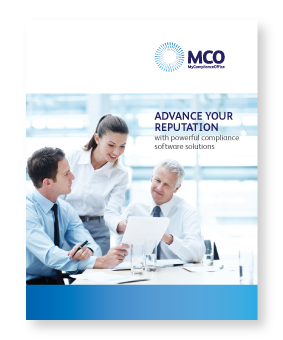OCIE Exam Priorities:
What RIAs Need to Know
On Jan 11, the U.S. Securities and Exchange Commission (SEC) released the Office of Compliance Inspections and Examinations’ (OCIE) priorities for 2016. Listen back as MyComplianceOffice and expert professional, Patrick J Burns of Advanced Regulatory Compliance (ARC) share what CCOs need to know.
Patrick J. Burns
Patrick J. Burns, Jr. is President and founder of Advanced Regulatory Compliance, Inc. He is the managing attorney with the Law Offices of Patrick J. Burns, Jr., P.C., a securities law firm dedicated to assisting industry members with their legal needs.
You can download a full copy of the slides from this webinar.
Full Video Transcript below
SEC Examinations in 2016
The SEC hasn't wasted any time in becoming active this year. I think 2016 will be a very active year by the SEC and other regulators.
To start with, the SEC just recently released a list of the 2016 OCIE Initiatives, the Office of Compliance Inspections and Examinations. We're going to touch upon that today. You can find a copy of the SEC's 2016 initiatives right on their website. It promises to be a pretty busy year. The SEC's outlined some areas that they'll be looking at, but there's also going to be possible rule-making and other things on the horizon for this year, so it will be I think a pretty busy year on the regulatory front. Next slide, please.
With the SEC's initiative to examine newly registered firms and never-before-examined firms, preparation is really key. The SEC is out looking at firms of all stripes, but they're especially interested in looking at firms that they've never visited previously, and that encompasses firms that have been registered for a while and, for some reason, have escaped having an examination to date and also certainly for newly registered firms.
We do a lot of registration work out of my office. I can't tell you the number of times that the SEC in recent years has been out to see new firms either for a limited examination or a full-blown examination and, generally speaking, these days, I found in my practice that the SEC is starting with a limited scope, kind of kick-the-tires-type examinations and then, if they are unsatisfied or don't like what they see on the surface of things, they'll move on to a fuller examination. The SEC is pretty active and looking at new firms and going out and doing exams and either staring those efforts remotely or coming on site, depending on the circumstances.
This presentation is designed to give you guidance over the entire process, from preparing the response letter to corresponding with the SEC. I hope that today's tips will prove successful when you do get examined.
Every year, as I mentioned earlier, the SEC's OCIE division identifies the exam priorities that reflect certain practices and products that they perceive to be of heightened risk to investors or capital markets.
What are Sweep Examinations?
The SEC sometimes takes upon itself to conduct "sweep" examinations that focus on one or more of these exam priorities, but they also sometimes focus on things that are not within the exam initiatives. In other words, the exam initiatives that the SEC releases are very instructive. They give you a window into what the SEC is thinking is on the regulatory front for when they come out to do an exam this year, but it's certainly not all-inclusive and the SEC oftentimes doesn't announce when they're doing "sweep" examinations.
What happens with "sweep" examinations is the SEC just picks a particular issue that they're either troubled by or wanted to learn more from information about either because there might be a possible rule-making on the horizon or there could worse enforcement cases that could come down if the SEC thinks that particular issue is causing harm to investors or is problematic.
Those types of examinations, as I mentioned a moment ago, are not always part of the exam priorities and they can just come up really at any during the year. Right now, it's January. The SEC has put out its guidance for what they'll be looking at, but, certainly along the way during the course of the year, there'll be many other areas that the SEC will focus on.
What are the SEC Priorities for 2016?
Now, just touching on the priorities for this year, a couple of high-level areas that the SEC will be looking at is retail investors. The SEC is particularly interested in looking at retail investors, particularly, investors that are saving for retirement. There's been a lot of regulatory initiatives on the retirement front. The Department of Labor has been looking at different rules. We won't get into those today, but, needless to say, saving for retirement is something that's really on the forefront of SEC examinations. They're also looking at issues related to market-wide risks. That may be something that takes on more of a focus this year especially with the recent volatility in the stock market. If some firms end up getting themselves into trouble and there's another financial crisis if go from shaky to worse, then, certainly, market-wide risk would be at the top of the exam priorities.
The SEC is also making great efforts to analyze data to identify and examine registrants that might be engaged in illegal or problematic activities. On this front, the SEC doesn't make it known exactly what data they're looking at, but a couple of takeaways that they're looking at, trading practicing, they get information from clearing firms and custodians and they sort and slice the data to look at problematic trading activity. They also look at other areas that aren't made public, but that's just an example of how they're using data to identify the firms that they want to go out and visit with.
For protecting investors, the SEC has listed a number of areas that they're going to be out looking at this year. I've listed a number of areas that are within the 2016 exam initiatives. Out of this list of areas that they're going to be looking at, I would say the ones that I would highlight for you are actually the last three. Fee selection and reverse churning is something that's come up during the examinations of our clients. It's really problematic for firms that haven't had a guidance in this area.
Unfortunately, it's not been made very clear in advance what the SEC is looking for. What I can tell you real briefly is that, for our clients that offer programs and programs, the SEC is very interested in knowing what the methodology is for firms deciding whether a client should go into a versus environment and also for hybrid firms that are duly registered with a broker-dealer affiliation and doing a fee-based business. The SEC is also looking at firms to say is it best for a client to be in a brokerage or in a fee-based environment.
Unfortunately, as I mentioned a moment ago, there's not a lot of guidance from the SEC on what exactly it is that they're looking for. There's no specific rule that's been put out in place other than the general 206(4)-7 types requirements on instituting and running a compliance program. It is something that, hopefully, there will be a little bit more guidance from the SEC on. Our hope is that that guidance doesn't come out in the form of enforcement cases.
What are the big issues for the SEC in 2016?
Now, there are other areas that the SEC is looking at. Cybersecurity is going to be a big issue this year. The SEC has provided some guidance on that. That's a good thing. Cybersecurity is going to be something that's really critical. There's been cases out there that the SEC has looked at with firms which have had issues with client information being compromised or firm information being compromised. The SEC is looking for firms to take common-sense measure.
I think the expectation level by the SEC goes up when there's more clients involved and the firm is larger and they have more resources financially-speaking to devote to cybersecurity efforts. Things like encryption, making sure that passwords are rotated and changed out frequently are certainly some of the basic things that the SEC would be looking at firms and making sure that they've locked down their technology, and then just making sure that they've got a good IT program in place to prevent client and firm information from being compromised.
Other areas that the SEC is looking at, as I mentioned a moment ago, are never-before-examined advisors. It's really critical for new firms to make sure that they've got all their docs in order before the SEC comes out. Real quickly, the most basic things are making sure that there's a compliance manual in place that's tailored to your firm's practices, and that goes for new firms as well as for existing firms.
"Update your Complaince Manual"
A lot of our clients, over the course of time, lose track of their compliance manual. It kind of sits on a shelf and it's not looked at very frequently. As a firm's practice changes and moves in different directions and the firm grows, they can really get away from what's written down in their initial set of compliance procedures. At least once a year, as part of an annual review process, the compliance manual should be taken off the shelf and gone through and made sure that it continues to be accurate and that there's not information in there that simply doesn't apply to the firm or doesn't correspond to changes that have taken places as the firm has continued to grow. That's the biggest area I think that firms can get tripped up on is not only having a compliance manual, one that doesn't correspond to actual practices.
Other areas that the SEC is looking at are clearing agencies. They're looking at custodial firms to match information against what's provided by the adviser. Private placements and private fund advisers are high on the list of firms to be examined and liquidity controls which, again, if there's a market decline or volatility. That may move up on the priority list for what the SEC is looking at in 2016.









